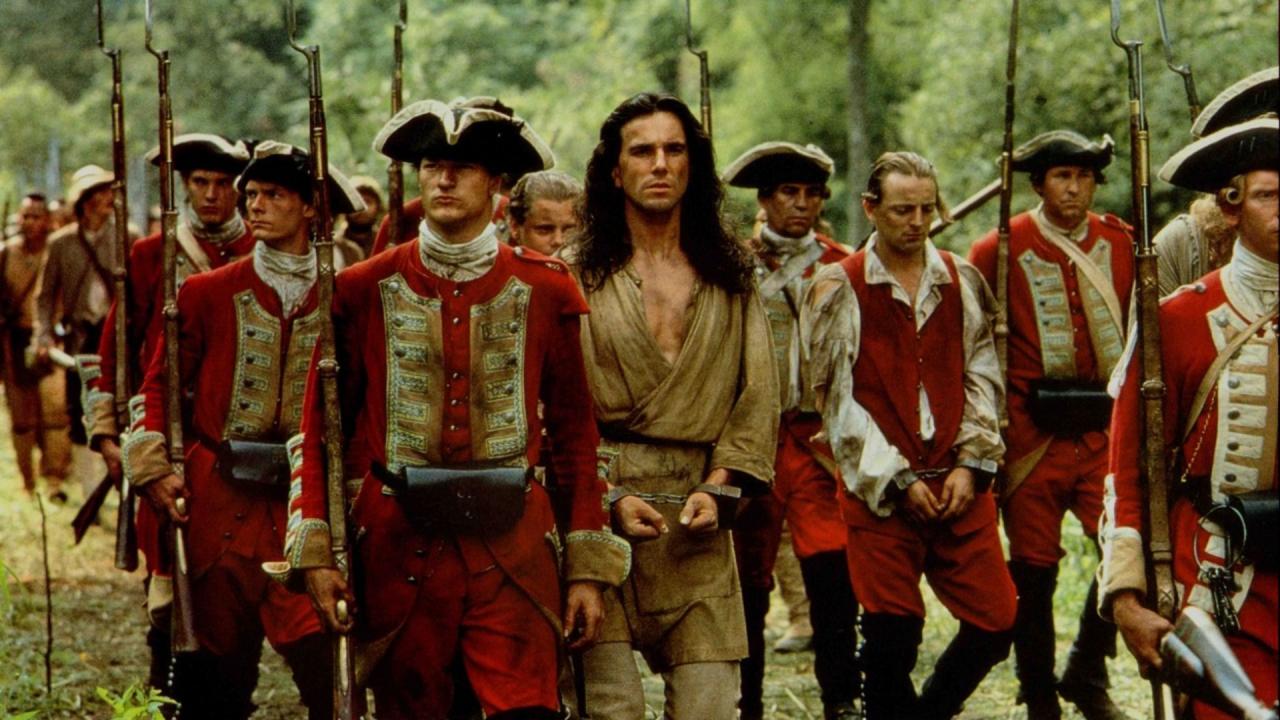“The Last of the Mohicans (1992)” is a gripping historical drama film directed by Michael Mann. Set against the backdrop of the French and Indian War, the movie offers a tale of love, war, courage, and betrayal in colonial America. Starring Daniel Day-Lewis, Madeleine Stowe, and Russell Means, the film is a cinematic adaptation of James Fenimore Cooper’s novel of the same name.

The story follows Hawkeye (played by Day-Lewis), a white man raised by the Mohican tribe, as he navigates the brutal realities of war and the complexities of his dual identity. Alongside his adopted father Chingachgook (Means) and brother Uncas (Eric Schweig), Hawkeye becomes entangled in the conflict between the British, French, and Native American forces.
At the heart of the narrative is the romance between Hawkeye and Cora Munro (Stowe), the daughter of a British colonel. Their love is tested as they struggle to survive in a war-torn land while facing opposition from both sides of the conflict. The film beautifully captures the tension between duty and desire, loyalty and love, as the characters fight for their beliefs and their lives.
Mann’s direction brings the rugged beauty of the American wilderness to life, with sweeping landscapes and intense battle sequences that immerse the audience in the chaos and danger of war. The film’s evocative score, composed by Trevor Jones and Randy Edelman, heightens the emotional impact of each scene, from tender moments of intimacy to harrowing acts of violence.

“The Last of the Mohicans” is not just a tale of adventure and romance; it also explores themes of cultural identity, resilience, and the devastating impact of war on communities and individuals. Through its rich storytelling and nuanced character development, the film offers a profound reflection on the human experience and the enduring power of love and sacrifice.
In conclusion, “The Last of the Mohicans (1992)” is a timeless classic that continues to captivate audiences with its blend of action, romance, and historical drama. With stellar performances, breathtaking visuals, and a compelling narrative, this film remains a standout in the realm of period cinema, leaving a lasting impression on all who watch it.